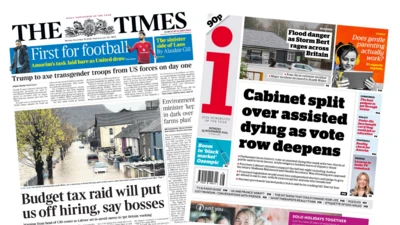We've updated our Privacy and Cookies Policy
We've made some important changes to our Privacy and Cookies Policy and we want you to know what this means for you and your data.
Muslim website defends Home Office funding
Image source, Getty Images
A community platform called SuperSisters, aimed at young Muslim women, has defended receiving a grant from the Home Office.
However, it apologised on social media for not being more open about the source of its funding.
It said it had retained "full independent control" over its output.
SuperSisters's parent company, J-Go, is that received funding via the government's Building a Stronger Britain Together programme.
'Countering extremism'
SuperSisters describes itself as "a global media platform for young Muslimahs in... east London and beyond to share and create inspiring and empowering content with positivity at its core".
The Home Office said J-Go had received funding since 2018. While its list of successful recipients includes J-Go, it does not specifically name SuperSisters.
"BSBT is an open and transparent programme, which supports local people in their vital work to bring communities together, promote fundamental values and tackle the spread of all extremist ideologies," it said in a statement.
The platform launched in 2015, in response to the actions of Shamima Begum, who fled Britain to join the Islamic State group in Syria at the age of 15.
, J-Go said it had accepted the grant to pay its staff a living wage and countering extremism was part of its purpose.
"We want to emphasise that even though BSBT may fund us, they do not have any creative control over SuperSisters content," it said.
SuperSisters's former social media manager Sabah Ismail she had left in August after finding out about the grant.
However, J-Go said it was "clear and transparent" about its funding to all interviewed candidates, including Ms Ismail.
Ms Ismail has been contacted by ҙуПуҙ«ГҪ News for comment.
In August, it was revealed the Home Office was behind a social news network called This is Woke, which featured discussions about many aspects of the Muslim faith.
That was part of a government counter-terrorism programme called Prevent, which SuperSisters said it had originally received money from but this had stopped because "what we did was not deemed suitable for the Prevent funding".
Top Stories
More to explore
Most read
Content is not available








